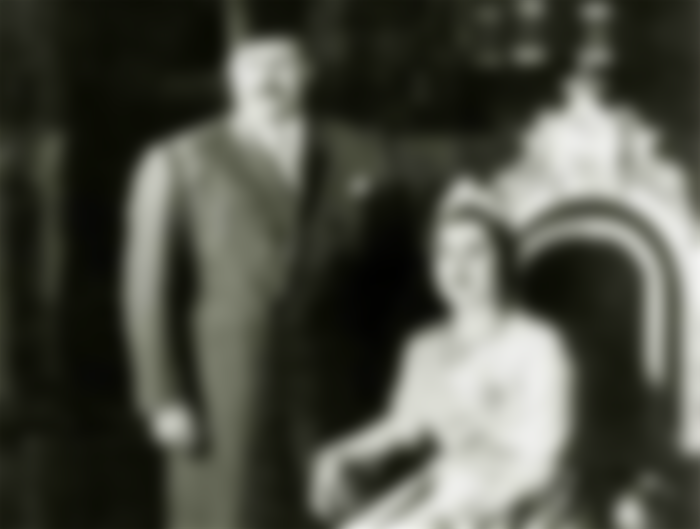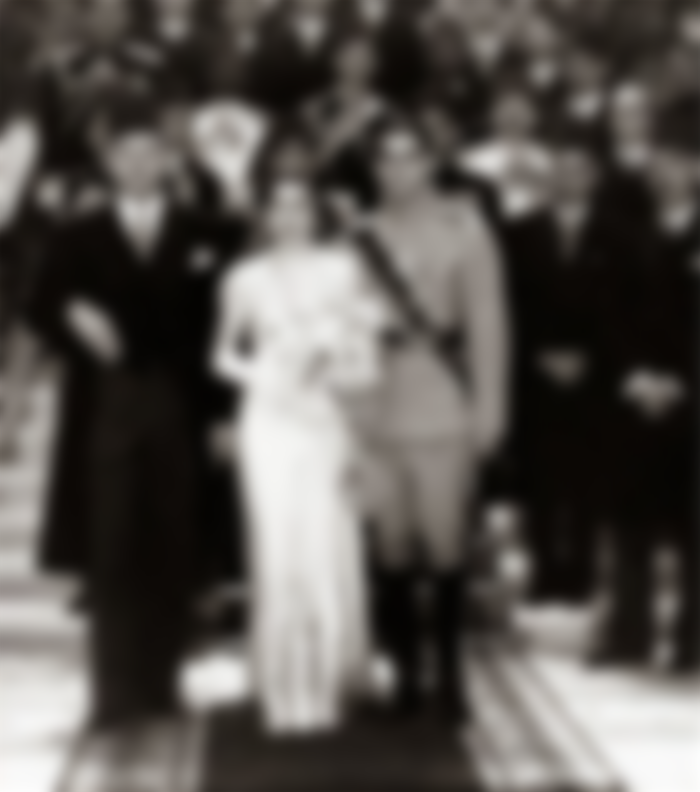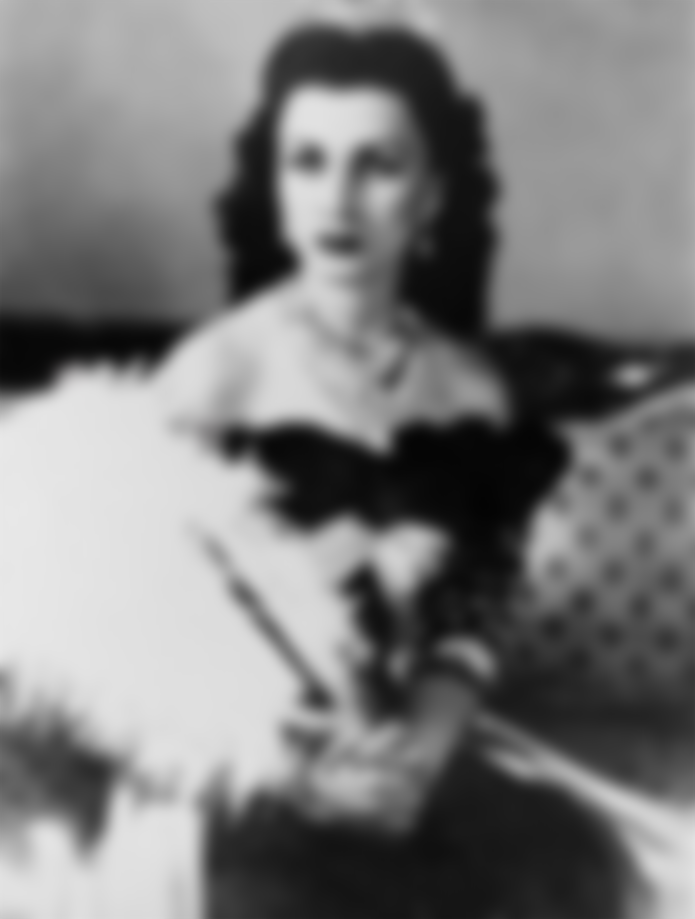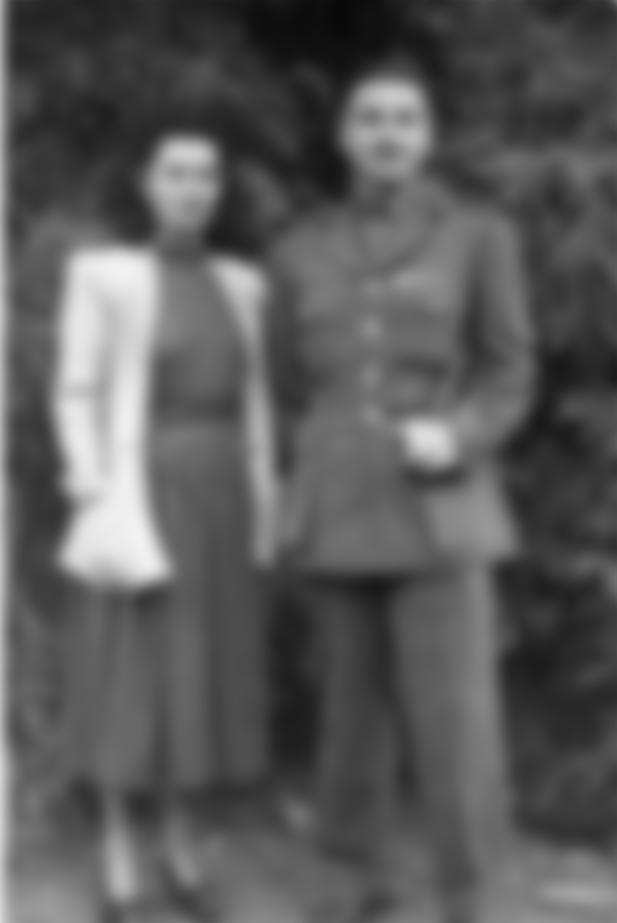Fawzia Fuad of Egypt, also known as Muluk Fawzia of Iran, was an Egyptian princess who became Iranian queen as the first wife of Mohammad Reza Pahlavi, the Shah of Iran.

Princess Fawzia Fuad was of Albanian and Egyptian descent. His paternal great-grandfather was Major General Muhammad Ali Pasha, who was of Albanian descent and served as prime minister and foreign minister. One of her great-grandparents was Suleiman Pasha, a French army officer who served in Napoleon, then converted to Islam and oversaw the overhaul of the Egyptian army with his great-grandfather Muhammad Ali Pasha the Great.

In addition to her sisters, Faiza, Faika and Fathia, and her brother Faruk, she also had two half-brothers and sisters from her father’s previous marriage to Princess Shwikar Khanum Effendi. Princess Fawzia was educated in Switzerland, and was fluent in English and French in addition to her native Arabic. Her beauty has often been compared to that of movie stars Hedy Lamarr and Vivien Leigh. Fawzia, as a young woman, is described in a 2011 book as "a very naive, overprotected, cellophane-wrapped girl, wrapped as a gift" who lived in a "bucolic environment".

Princess Fawzia's wedding to Iranian Crown Prince Mohammad Reza Pahlavi was planned by the father of the latter Reza Shah. The Egyptians were not impressed by the gifts Reza Shah sent to King Farouk to persuade him to marry his sister Prince Mohammad Reza, and when an Iranian delegation arrived in Cairo to arrange a marriage, the Egyptians took the Iranians on a tour of the palace built by Isma'il -pasha, known as "Ismail the Magnificent", to show them the true royal splendor.
At the same time, Maher Pasha was working on plans to marry the other Farouk sisters to Iraqi King Faisal II and his son Emir Abdullah of Jordan, planning to forge a block dominated by Egyptians in the Middle East. To prepare for life in Iran, Fawzia was assigned a teacher who taught her Persian.Princess Fawzia of Egypt and Mohammad Reza Pahlavi were engaged in May 1938. However, they saw each other only once before the wedding. They were married at the Abdeen Palace in Cairo on March 15, 1939. King Farouk took the couple on a tour of Egypt, showing them the pyramids, Al-Azhar University and other famous places in Egypt. After that, Fawzia traveled by train to Iran together with her mother, Queen Nazli.

When they returned to Iran, the wedding ceremony was repeated at the Marble Palace in Tehran, which was also their future residence. Fawzia disliked Reza Khan, whom she described as a violent man prone to whip attacks on people.
After the wedding, the princess was granted Iranian citizenship. Two years later the heir to the throne succeeded his exiled father and was to become an Iranian shah. Shortly after her husband's accession to the throne, Queen Fawzia appeared on the cover of Life magazine on September 21, 1942. She was photographed by Cecil Beaton, who described her as an "Asian Venus" with a perfect heart-shaped face and an unusually pale but penetrating with blue eyes. "

With Mohammad Reza Shah Pahlavi, King of Iran, she had one child, a daughter, Princess Shahnaz Pahlavi, born on October 27, 1940.
Fawzia was deeply unhappy in Iran and often missed her homeland Egypt. Fawzia’s relationship with her mother-in-law and her sisters-in-law was particularly turbulent, as the Queen Mother and her daughters saw her as a rival for the affection of Mohammad Reza Shah, so they were constantly in conflict. One of Mohammad Reza’s sisters smashed a vase over Fawzi’s head. Mohammad Reza was often unfaithful to Fawzi and was seen driving with other women in Tehran from 1940 onwards. Fawzi's son-in-law Ardeshir Zahedi told Iranian-American historian Abbas Milani in a 2009 interview about the rumors: "She is a lady and has never strayed from the path of purity and fidelity." From 1944 onwards, Fawzi was treated for depression by an American psychiatrist because she stated that her marriage was without love and she desperately wanted to return to Egypt.

Queen Fawzia moved to Cairo in May 1945 and achieved an Egyptian divorce. The reason for her return was that she considered Tehran underdeveloped, unlike modern, cosmopolitan Cairo. She visited an American psychiatrist in Baghdad for her problems just before she left Tehran. On the other hand, CIA reports claim that Princess Fawzia ridiculed and humiliated the Shah for his alleged helplessness, leading to their separation. In her book, Ashraf Pahlavi, the chess’s twin sister, claims that the princess, not the chess player, sought a divorce.
Iran did not recognize the divorce for several years, but eventually, on November 17, 1948, an official divorce took place, with Queen Fawzia also successfully regained her previous recognition as an Egyptian princess. The main condition of the divorce was that her daughter stay to grow up in Iran. The official announcement of the divorce stated that "the Persian climate endangered the health of Empress Fawzia and that it was agreed that the Egyptian king's sister would divorce." In another official statement, the Shah said that the dissolution of the marriage "can in no way affect the existing friendly relations between Egypt and Iran."

At Koubba Palace in Cairo, on March 28, 1949, Princess Fawzia married Colonel Ismail Chirine (1919–1994), who was the eldest son of Hussein Chirine Bey and his wife, HRH Crown Princess Amine Bihruz Khanum Effendi. He graduated from Trinity College, Cambridge and was once the Egyptian Minister of War and Navy. After the wedding, they lived on a property owned by the princess in Maadi, Cairo, and also stayed at a villa in Smouha, Alexandria. Unlike her first marriage, this time Fawzia married out of love and was described as happier in her marriage to Colonel Chirine than she had ever been to an Iranian shah. They had two children, a daughter and a son: Nadia Chirine and Sinai Shabaan.

Fawzia lived in Egypt after the 1952 revolution that overthrew King Farouk. Princess Fawzia's death was mistakenly reported in January 2005. Journalists mistaken her for her niece, Princess Fawzia Faruk (1940-2005), one of King Farouk's three daughters. In her later life, Princess Fawzia lived in Alexandria, Egypt, where she died on July 2, 2013, at the age of 91. Her funeral ceremony was held after noon prayer at the Sayed Nafis Mosque in Cairo, on July 3rd. She was buried in Cairo, next to her second husband. She was the oldest member of the Muhammad Ali dynasty residing in Egypt.







